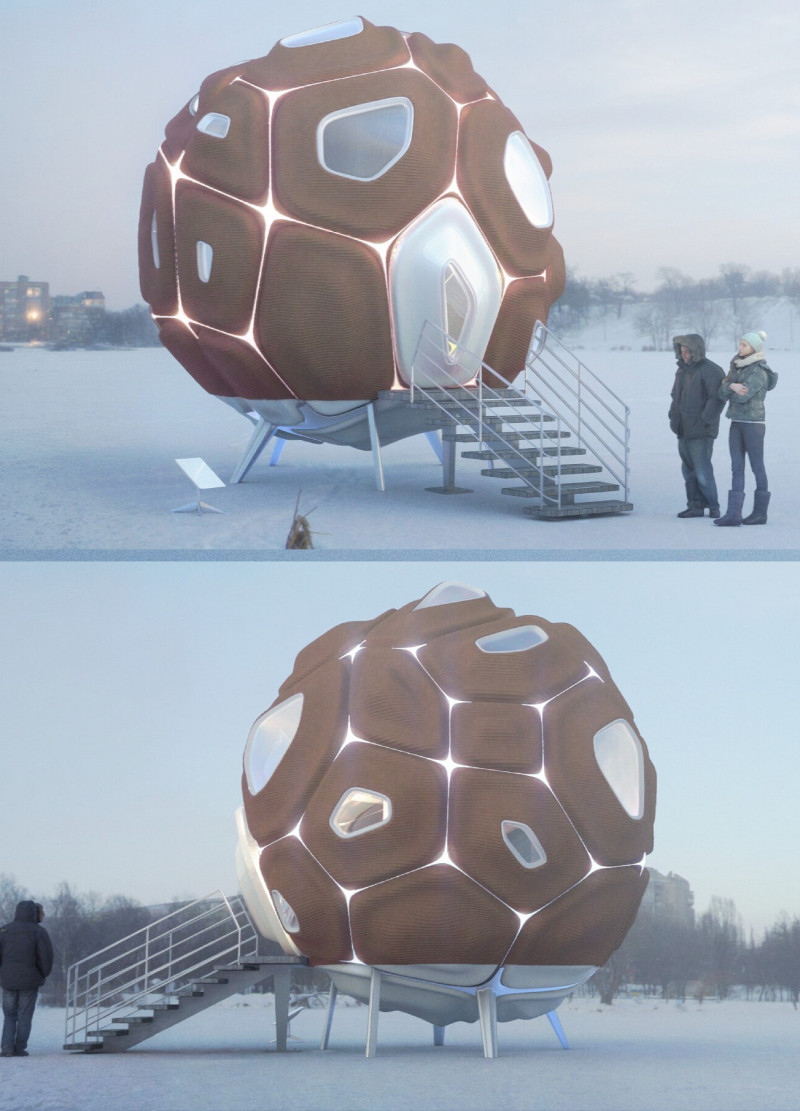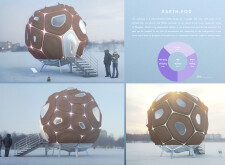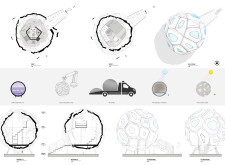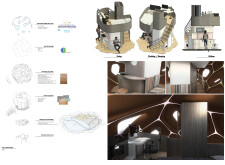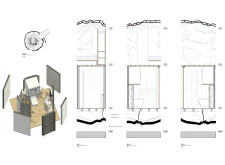5 key facts about this project
### Overview
Located in diverse environments, the Earth-Pod project aims to provide a self-sustaining habitat suitable for two individuals. The design integrates contemporary approaches to sustainability, minimalism, and adaptability, responding effectively to current architectural challenges. The concept emphasizes eco-friendly materials and technology while ensuring functionality and aesthetic consideration.
### Materiality and Sustainability
The exterior of the Earth-Pod is primarily constructed from 3D printed clay, sourced locally to minimize transportation emissions. This material is characterized by its thermal mass properties, which facilitate indoor temperature regulation and energy efficiency. The clay’s porosity also aids in rainwater absorption and filtration, contributing to the pod's self-sufficiency. Complementing the clay, lightweight fiberglass panels provide structural support and durability, essential for the unit's portability.
The interior boasts natural wood finishes that enhance both comfort and insulation. Strategically positioned photovoltaic glass maximizes solar energy capture, enabling off-grid living. Additionally, energy-efficient LED lighting contributes to a warm atmosphere without significant electricity consumption, reinforcing the project's commitment to sustainability.
### Functional Design and Spatial Strategy
The Earth-Pod's interior layout is optimized for versatility, accommodating multiple uses ranging from temporary retreat to permanent dwelling. Key functional areas include a dedicated workspace, cozy living nook, efficiently designed kitchen and dining area, and a compact bathroom. Each space maximizes utility while ensuring comfort, demonstrating thoughtful spatial strategy within a limited footprint.
The mobility of the Earth-Pod is a distinctive feature, achieved through its lightweight materials and modular design. This adaptability allows the structure to be transported easily across various terrains, making it suitable for both urban and rural contexts. The integration of renewable energy systems and self-sufficient water management underscores its role as a progressive model for sustainable living, contributing to a reduced ecological footprint.


